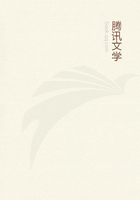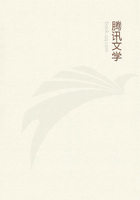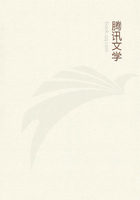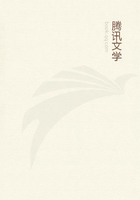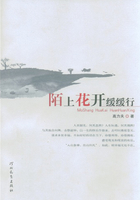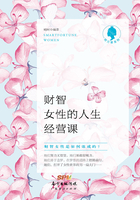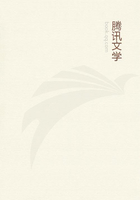But [though sound and odour may travel,] with regard to Light the case is different. For Light has its raison d'etre in the being [not becoming] of something, but it is not a movement. And in general, even in qualitative change the case is different from what it is in local movement [both being different species of kinesis]. Local movements, of course, arrive first at a point midway before reaching their goal (and Sound, it is currently believed, is a movement of something locally moved), but we cannot go on to assert this [arrival at a point midway] like manner of things which undergo qualitative change. For this kind of change may conceivably take place in a thing all at once, without one half of it being changed before the other; e.g. it is conceivable that water should be frozen simultaneously in every part. But still, for all that, if the body which is heated or frozen is extensive, each part of it successively is affected by the part contiguous, while the part first changed in quality is so changed by the cause itself which originates the change, and thus the change throughout the whole need not take place coinstantaneously and all at once. Tasting would have been as smelling now is, if we lived in a liquid medium, and perceived [the sapid object] at a distance, before touching it.
Naturally, then, the parts of media between a sensory organ and its object are not all affected at once- except in the case of Light [illumination] for the reason above stated, and also in the case of seeing, for the same reason; for Light is an efficient cause of seeing.
Another question respecting sense-perception is as follows:
assuming, as is natural, that of two [simultaneous] sensory stimuli the stronger always tends to extrude the weaker [from consciousness], is it conceivable or not that one should be able to discern two objects coinstantaneously in the same individual time? The above assumption explains why persons do not perceive what is brought before their eyes, if they are at the time deep in thought, or in a fright, or listening to some loud noise. This assumption, then, must be made, and also the following: that it is easier to discern each object of sense when in its simple form than when an ingredient in a mixture; easier, for example, to discern wine when neat than when blended, and so also honey, and [in other provinces] a colour, or to discern the nete by itself alone, than [when sounded with the hypate] in the octave; the reason being that component elements tend to efface [the distinctive characteristics of] one another. Such is the effect [on one another] of all ingredients of which, when compounded, some one thing is formed.
If, then, the greater stimulus tends to expel the less, it necessarily follows that, when they concur, this greater should itself too be less distinctly perceptible than if it were alone, since the less by blending with it has removed some of its individuality, according to our assumption that simple objects are in all cases more distinctly perceptible.
Now, if the two stimuli are equal but heterogeneous, no perception of either will ensue; they will alike efface one another's characteristics. But in such a case the perception of either stimulus in its simple form is impossible. Hence either there will then be no sense-perception at all, or there will be a perception compounded of both and differing from either. The latter is what actually seems to result from ingredients blended together, whatever may be the compound in which they are so mixed.
Since, then, from some concurrent [sensory stimuli] a resultant object is produced, while from others no such resultant is produced, and of the latter sort are those things which belong to different sense provinces (for only those things are capable of mixture whose extremes are contraries, and no one compound can be formed from, e.g. White and Sharp, except indirectly, i.e. not as a concord is formed of Sharp and Grave); there follows logically the impossibility of discerning such concurrent stimuli coinstantaneously.
For we must suppose that the stimuli, when equal, tend alike to efface one another, since no one [form of stimulus] results from them; while, if they are unequal, the stronger alone is distinctly perceptible.
Again, the soul would be more likely to perceive coinstantaneously, with one and the same sensory act, two things in the same sensory province, such as the Grave and the Sharp in sound;for the sensory stimulation in this one province is more likely to be unitemporal than that involving two different provinces, as Sight and Hearing. But it is impossible to perceive two objects coinstantaneously in the same sensory act unless they have been mixed, [when, however, they are no longer two], for their amalgamation involves their becoming one, and the sensory act related to one object is itself one, and such act, when one, is, of course, coinstantaneous with itself. Hence, when things are mixed we of necessity perceive them coinstantaneously: for we perceive them by a perception actually one. For an object numerically one means that which is perceived by a perception actually one, whereas an object specifically one means that which is perceived by a sensory act potentially one [i.e. by an energeia of the same sensuous faculty]. If then the actualized perception is one, it will declare its data to be one object; they must, therefore, have been mixed. Accordingly, when they have not been mixed, the actualized perceptions which perceive them will be two; but [if so, their perception must be successive not coinstantaneous, for] in one and the same faculty the perception actualized at any single moment is necessarily one, only one stimulation or exertion of a single faculty being possible at a single instant, and in the case supposed here the faculty is one. It follows, therefore, that we cannot conceive the possibility of perceiving two distinct objects coinstantaneously with one and the same sense.

